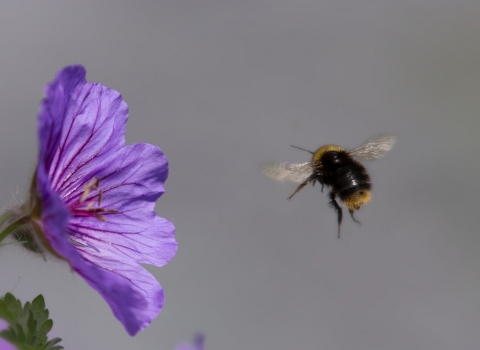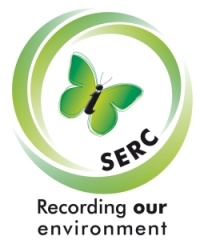What is Somerset Environmental Records Centre?
Set up in 1986 as a joint venture between Somerset Wildlife Trust and Somerset County Council, Somerset Environmental Record Centre is a partnership organisation based within Somerset Wildlife Trust and is part of a network of local record centres across the UK.
Somerset Environmental Records Centre (SERC) is the main reference centre for biological and geological information for the county. It holds data on wildlife sightings, types of environments and geological information for Somerset. The species and habitat data the record centre collates helps to form the basis for setting conservation priorities for Somerset. Any income it generates from commercial work is channelled back into nature conservation and supporting recording within Somerset.
What SERC does
The data the record centre gathers on sites, habitats and species across Somerset is used to inform conservation strategy, development planning, and for research.
Individuals and organisations can access this information through the data enquiries service. Enquirers seeking data for non-commercial activities, such as wildlife recording, conservation work and academic research, can usually access the data for free.
SERC has been helping to monitoring Somerset’s biodiversity for over twenty years. SERC work very closely with Specialist Groups such as the Somerset Butterfly Group to plan county activities, share knowledge and data and develop a good network of advice and support.
SERC manages the Local Wildlife Sites (LWS) and Local Geological Sites (LGS) survey programmes, reviewing sites against the county criteria and proposing any changes to designations of sites.
Submit data
All sightings are important, from butterflies to hedgehogs, to the birds and the bees, so get out and about and record what you see! SERC is interested in all records – please don’t assume that we already know. Records of rarities are always useful and can aid conservation efforts, but equally important are records of widespread species. All records can be useful for plotting the distributions of species both locally and nationally, and for detecting trends.
Here’s what to do
- Note down a few simple details of what was seen where and when and by who, e.g. Kingfisher; River Tone in Taunton by the Goodland Gardens bridge; Harriet Smith; 15 October 2023.
- Be as precise as possible, if the details are too vague we won’t be able to make use of the record.
- Provide any other relevant information such as, the type of record, number, sex, or stage.
Who – Provide your full name and contact details; this helps us distinguish between different recorders and enables us to check details if necessary.
What – Give the scientific name if you can, or the standard common name.
If you don’t know the exact species please be as specific as possible about what you’ve seen, for example ‘pipistrelle bat’, ‘newt’, ‘Rosa species.’’
Where – Give a grid reference and a location name if you can, otherwise please provide a good description to help us assign an accurate grid reference.
When – Ideally give an exact date, however the month and year, or a date range, is sufficient.
Request data
SERC handles several types of request:
- Commercial searches - This service is typically for consultants seeking data for planning applications. There is a fee for this service. A quote will be issued on receipt of your request form.
- Academic and landowner searches - This service caters for requests for academic research – for example, a project looking into a particular species or taxonomic group, and for landowners seeking information about their land-holdings. These requests are normally free of charge.
- Neighbourhood and community planning searches - This service caters for Parish Councils or Neighbourhoods thinking about Neighbourhood or Community Planning. There is a fee for this service.
Searches are normally turned around within 10 working days, either from the date our quote is accepted for searches where a fee is due, or from date of receipt for other searches. At busy times, however, priority will always be given to Commercial Searches. We do not offer a fast track service.
Do your bit for wildlife
There are lots of ways you can do your bit to help wildlife. Whether you can give an hour or two of your time a week to help in the office or prefer to be outdoors surveying, either on your own or by joining an organised survey. You may have a passion for a particular species in which case there are many specialist groups in Somerset that you may be interested in becoming more involved with.
You could do your bit at a time which suits you, in your garden or local neighbourhood or take part in a group. You could turn your garden into your very own nature reserve and record how your changes are impacting on the wildlife by recording your sightings.


